The Role of Nursing Agencies in Improving Healthcare Services: Insights and Innovations
In an era where healthcare demands are incessantly on the rise, the role of nursing agencies in improving healthcare services has become increasingly pivotal. Not only do these agencies provide a vital link between skilled nursing professionals and healthcare facilities, but they also contribute significantly to the enhancement of patient care quality. The importance of their function is particularly noticeable in various settings, including the notable role of nursing agencies in healthcare in Australia, where they have become an integral part of the healthcare system. By ensuring that healthcare facilities have access to highly skilled nurses, these agencies play a crucial role in addressing staffing shortages and improving patient outcomes.
This article delves into the dynamics of nursing agencies, highlighting their innovations, and the impact they have on healthcare services. With a focus on how these agencies operate, the innovative strategies they employ, and their overall contribution to the healthcare sector, readers will gain insights into the significant role that these agencies play. From the introduction of advanced recruitment methods to the implementation of stringent quality controls, this article presents a comprehensive overview of how nursing agencies are shaping the future of healthcare services, particularly emphasising the role of nursing agencies in healthcare in Australia.
Overview of Nursing Agencies
Definition and Purpose
A nursing agency is an organisation that provides temporary and permanent staffing solutions to healthcare facilities such as hospitals, nursing homes, and home care agencies. These agencies source qualified nursing professionals and match them with healthcare facilities that require their services, thereby addressing the growing demand for qualified nursing staff due to factors like an aging population and increased healthcare needs.
Historical Context
The concept of nursing agencies has evolved significantly over the years. Initially, during the early 20th century in the United States, private duty registry systems, rather than hospitals, shaped the work lives of graduate nurses. These registries played a crucial role in connecting nurses with patients and verifying the capabilities of nurses. Over time, the role of nursing agencies expanded globally, with agencies now playing a pivotal role in providing flexible, skilled nursing care across various healthcare settings. This evolution reflects the dynamic needs of the healthcare industry and the critical role of nursing agencies in meeting these demands.
Innovations in Nursing Agencies
Technological Advancements
Nursing agencies are leveraging cutting-edge technologies to transform staffing and training within the healthcare sector. Artificial intelligence (AI) and machine learning (ML) are at the forefront, enhancing the recruitment process by predicting staffing needs and optimising schedules. This integration helps in reducing burnout and making the hiring process more efficient. Additionally, the adoption of telehealth has surged, particularly highlighted by the COVID-19 pandemic, creating numerous remote care job opportunities. Nurses are now required to be proficient in telemedicine platforms and virtual collaboration tools, ensuring they can provide care from a distance while adhering to data security protocols.
Emerging technologies like virtual reality (VR) and augmented reality (AR) are also significant, with VR training tools allowing nurses to simulate medical procedures safely and AR helping in complex tasks such as surgery. Furthermore, wearable tech provides real-time feedback during training, enhancing the learning experience by monitoring vital signs and procedural accuracy.
Innovative Staffing Models
Australian healthcare organisations are adopting agile staffing models to respond swiftly to changing patient needs and healthcare delivery demands. This approach includes structuring the workforce in manageable 'sprints', allowing for rapid adaptation to new requirements and integrating feedback from key stakeholders, including patients. Components of this model include the availability of a pool of qualified temporary workers who can be mobilised at short notice and cross-training staff across multiple roles, thus creating a versatile workforce capable of handling various scenarios.
Additionally, innovative staffing strategies such as the in-house model and top-of-license practice are being implemented to reduce costs and improve efficiency. These models emphasise utilising internal resources, ensuring that team members operate at the top of their training and experience, which not only reduces expenses but also enhances service delivery.
Impact on Healthcare Services
Quality of Care
Nursing agencies play a crucial role in maintaining high standards of care in healthcare facilities by addressing staffing shortages. By supplying skilled nurses and midwives, these agencies ensure that patient care is not compromised, even during surges in patient volume or when permanent staff are unavailable. This flexibility is vital for healthcare establishments to effectively manage changes in patient numbers and maintain consistent care standards.
Agency nurses bring a diverse range of skills and specialised knowledge to their roles, enhancing the overall quality of care. For instance, their experience with specific patient populations or medical conditions can be invaluable in situations where specialised expertise is crucial. This not only supports the healthcare facilities in providing tailored care but also aids in better patient management and treatment outcomes.
Patient Outcomes
The contribution of nursing agencies to improved patient outcomes is significant. They help improve patient-to-staff ratios, which is critical in reducing the risk of medical errors and adverse events. By providing additional staff, nursing agencies ensure that each patient receives the necessary attention and care, which can lead to enhanced patient satisfaction and better overall health outcomes.
Furthermore, the presence of agency nurses can improve continuity of care. Patients benefit from consistent care, which builds trust and confidence in the healthcare services provided. This continuity is essential for maintaining treatment effectiveness and can significantly impact recovery times and patient satisfaction.
Overall, the role of nursing agencies in healthcare in Australia and beyond is integral to enhancing both the quality of care and patient outcomes, making them a pivotal component of the healthcare system.
Conclusion
Throughout this discourse, we've explored the significant role nursing agencies occupy in bolstering healthcare services, with a special lens on the multifaceted Australian context. The insights shared underscore the invaluable contribution of these agencies in sourcing skilled nursing professionals, innovating staffing strategies, and integrating cutting-edge technologies, all aimed at enhancing patient care quality. The phenomena of adapting to agile staffing models, coupled with the adoption of advanced digital tools, affirm the pivotal position of nursing agencies in not only addressing staffing shortages but also in elevating the standards of healthcare delivery.
The implications of these contributions are far-reaching, influencing patient outcomes positively and ensuring high standards of care across healthcare settings. The flexibility offered by nursing agencies in meeting the dynamic demands of the healthcare sector, alongside their role in introducing specialised expertise and facilitating continuity of care, underscores their indispensable role in the healthcare ecosystem. As we move forward, the continued evolution and innovation within nursing agencies will undoubtedly play a crucial role in shaping the future of healthcare services, making their study and ongoing adaptation paramount












